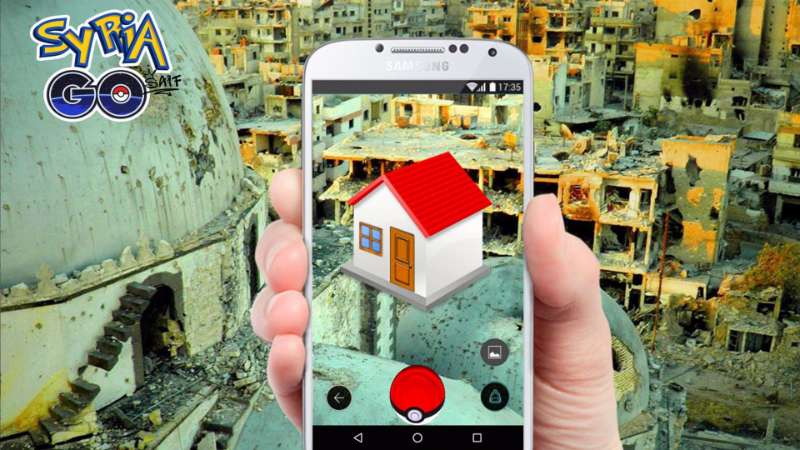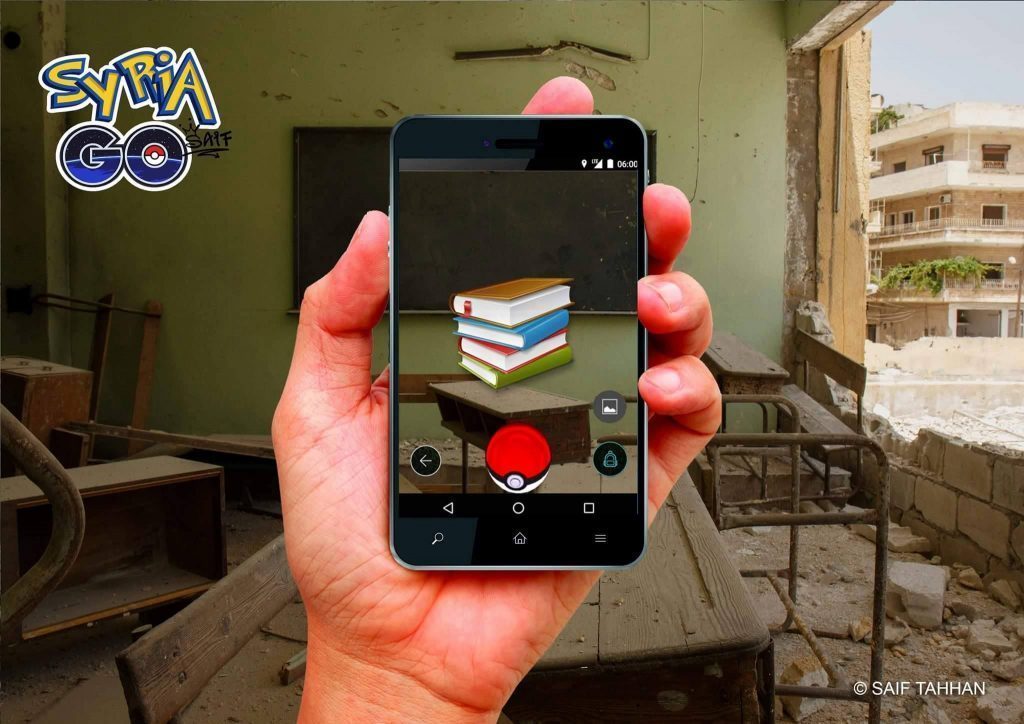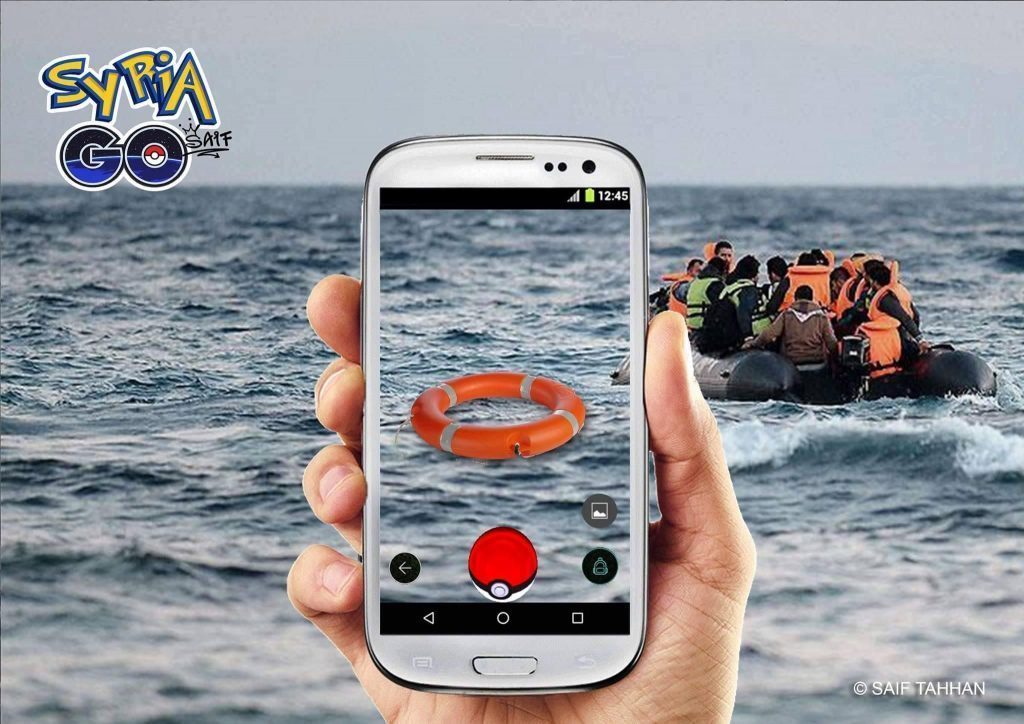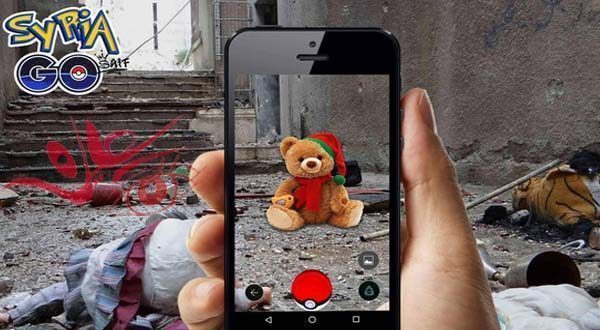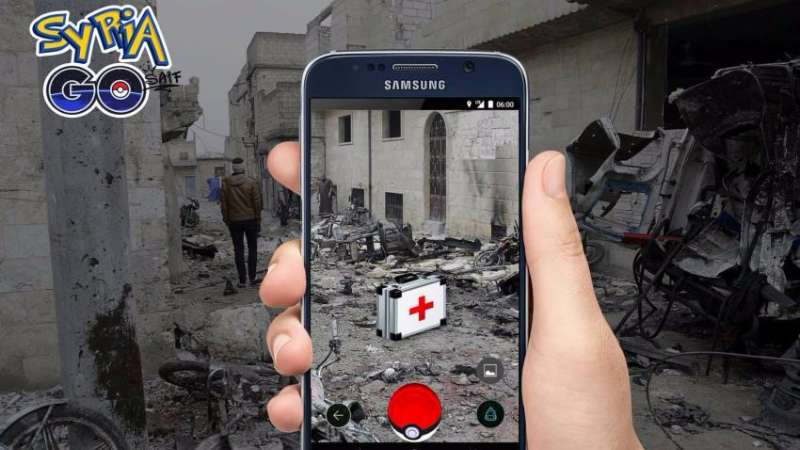
Pokemon Go became the newest video game sensation for gamers of all ages immediately after its release in July of 2016, and Syrian activists used its popularity to highlight the Syrians’ suffering.
The free, location-based, augmented reality mobile game was developed by Niantic and published by The Pokémon Company for iOS and Android devices.
The game makes use of GPS and the cameras of compatible devices to allow players to capture, battle, and train virtual creatures called Pokémon who appear on real-time location maps as if they are actually there.
The overwhelmingly popular mobile app is based on a 1990s Nintendo game familiar to many of the players who are now seen roaming the real world looking for virtual cartoon monsters.
And now Saif Tahhan, a graphic designer from Syria now living in Denmark, has taken inspiration from the smash hit virtual reality game and posted images he calls the ‘Syrian version’ of the game on Facebook in order to shed light on the suffering being experienced in his homeland.
In an alternate reality SyriaGo images created by Tahhan, people are seen playing the game in devastated Syrian cities; but instead of chasing imaginary monsters, they are trying to catch first aid, life vests, teddy bears, books, and housing.
“The world has become obsessed with this video game, so I told myself why not use it as a medium to convey our suffering,” Tahhan said in an article in The New Arab.
“Everyone is now searching for Pokemon, however, Syrians are searching for the basic necessities of life. Honestly, I don’t think the world feels for us.”
It is impossible to provide an accurate count of those who have been killed in Syria. The UN quit counting at 250,000 a couple years ago — but the death toll has continued to climb daily ever since.
While many have been swept up in the overnight sensation that requires players to get up from their stationary gaming consoles and their hubbly bubbly and get outside and move — the game was set up to be able to tell if you are sitting still and does not actively engage unless you are physically moving — authorities in the Arab world have already adopted a critical view of the game.
A cleric from Egypt’s top Islamic authority said this week that the game is “prohibited” for Muslims, while Abbas Shouman, the deputy chief of al-Azhar, Sunni Islam’s foremost religious authority, equates spending time playing the game with drinking alcohol which is prohibited in Islam.
Meanwhile, the United Arab Emirates weighed in on Friday with a warning that criminals could exploit users of Pokemon Go, and similar apps, to hack their phones and spy on their movements.
Experienced gamers, however, have been finding ways to negate the security risks the game poses.
If only the world’s gaming masterminds would come up with a program that would eliminate the real security risks being faced by millions of innocent Syrians.

